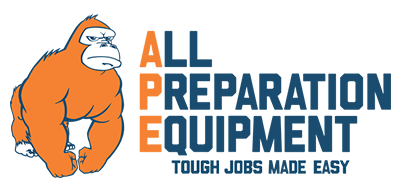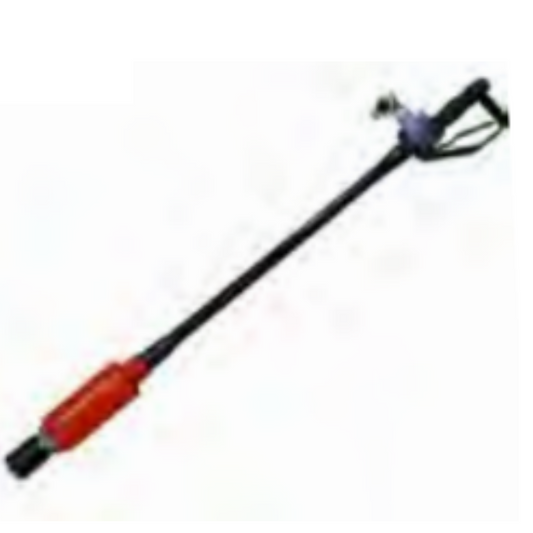WHEN SHOULD I USE A CONCRETE SCABBLER?
A scabbler, as opposed to grinders or scarifiers, is meant to roughen concrete surfaces more effectively. It pounds piston-mounted tungsten carbide bits into the concrete surface at up to 1,200 strikes per minute with compressed air.
Handheld and walk behind Scabblers are driven by either air, electricity, or gas and feature tungsten carbide bits that can last up to 50 hours.
Largely Scabblers need vacuum ports for dust-free operation, as well as an automatic in-line lubricator or oiler to keep piston maintenance to a minimum.
HOW EFFICIENT ARE CONCRETE SCABBLERS?
Scabblers can remove up to a quarter-inch of concrete in one pass, depending on the concrete's strength. Typically, numerous passes are required to reach the desired depth.
However, scabblers can remove up to 200 square feet per hour at 3/16" depth every pass. Scabblers level uneven joints and scabble down high places in concrete, and they also generate an excellent surface texture for bonding overlays.
WHY DO WE NEED CONCRETE SCABBLING?
Concrete scabbling has a wide range of applications in the industry. A slightly uneven surface, for example, can increase friction. Rugged surfaces allow for higher tyre grip in forklift operations, which is critical when driving and braking while moving items.
Scabblers can also make wheelchair ramps, fix trip hazards on the sidewalk, create slip-resistant surfaces, remove delaminated, spalled, or degraded concrete, and break up ceramic tile.
Scabbling is also an effective concrete preparation technique. It's frequently used to get rid of pollutants, adhesives, marks, or coatings before doing things like sealing or grouting. It can also be utilized to give a decorative element, giving an uneven concrete surface a new look.


 Store Locator
Store Locator Login
Login
 Cart
Cart





